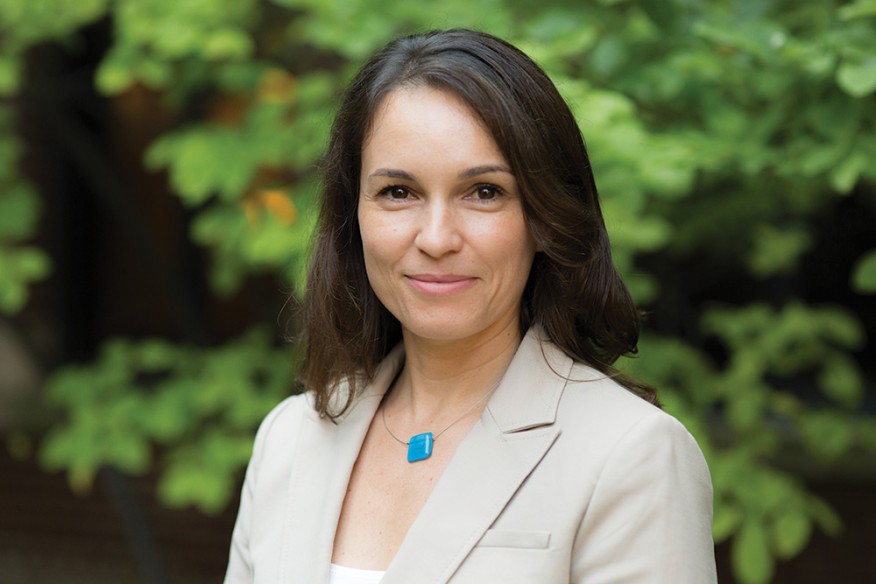Cristina Bares, PhD ‘07 is a storyteller of sorts.
Through her research into the biological, psychological and environmental factors contributing to substance use, cigarettes in particular among children and adolescents, Bares seeks to provide stories as complex as the individuals and groups she studies.
“I’m motivated by the desire to understand the person as a whole,” Bares said. “It’s fascinating to me that we start out as tiny little clusters of cells and grow into fully realized human beings with thoughts and feelings and plans for the future. I’m curious about what happens to children as they grow and have experiences in the world that leads them to pick up that first cigarette.”
Bares joined U-M as assistant professor of social work in September of 2015. She is a graduate of the U-M Joint Doctoral Program in Social Work and Developmental Psychology and is the first Curtis Center Post Doctoral Fellow.
Bares contends that factors such as anxiety and depression interact with biology and the social environment and lead to the use of cigarettes and other unhealthy behaviors as a means of coping.
To learn more about how and when coping behaviors are triggered, Bares designed a diary study that prompts adolescents and young adults ages 16-21 to document their moods and habits via texts on their smartphones.
Text 4 Thoughts (T4T) follows sets of identical and fraternal twins for ten days, sending three texts per day asking participants about what they’re doing, how they’re feeling, who they are with and whether or not they’ve smoked (tobacco or electronic cigarettes).
“One day they might be feeling great and as a result be more health-minded,” Bares said. “But on a stressful day, they may forgo healthy thoughts and intentions. We look at how daily experiences affect mood and interact with genetic vulnerabilities to influence behavior.”
Bares says the immediacy of daily texting will yield more accurate data than large national surveys asking about behaviors engaged in over a period of a month or more.
“Our memories are flawed,” Bares said. “Those data sources aren’t accurate enough to tell the real story.”
T4T could help researchers predict who is vulnerable and when, and possible ways in which they’ll cope.
“Using twins can help us tease out how much of a behavior is genetic and what is environmental,” Bares explained. “If a certain behavior is under genetic control, identical twins would behave very similarly.”
Ultimately, Bares hopes her findings will lead to better approaches to help reduce rates of substance use.
“This is the place where social work can have real power in effecting change.”
Bares was born in Uruguay and raised in Southeast Michigan. Most recently she was assistant professor at Virginia Commonwealth University’s School of Social Work in Richmond, Virginia from 2011-2015.
